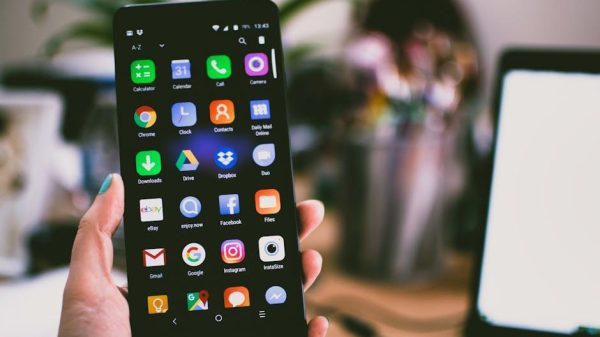In the age of digital courtship, where swipes dictate destiny and emojis replace earnest expressions, the art of dating has been reimagined. As algorithms attempt to decode the mysteries of human attraction, a new phenomenon has emerged from the shadows of our screens: ghosting. The silent vanishing act, once reserved for casual acquaintances, now haunts the world of modern romance with alarming frequency. But as dating apps streamline the search for connection, are they also making it too easy to disappear without a trace? This article delves into the enigmatic world of ghosting, exploring whether the very platforms designed to bring us closer are, paradoxically, facilitating the ultimate disconnect.
Why Ghosting Has Become the Norm in Digital Dating
In the world of digital dating, ghosting has become an all-too-common phenomenon, leaving many wondering why it has turned into such a pervasive part of the online experience. Digital platforms offer a vast pool of potential matches, and with such an abundance of options, the act of disappearing without explanation can seem like the path of least resistance. Instead of confronting difficult conversations, users may find it easier to simply vanish, assuming that the sheer number of other potential partners will cushion any fallout from the decision.
Furthermore, the anonymity and detachment provided by dating apps foster an environment where accountability can feel diluted. This detachment is compounded by the rapid pace of communication, where swiping left or right can become a mechanical action rather than a thoughtful decision. Some key factors contributing to this norm include:
- Instant Gratification: The immediacy of connections can devalue individual interactions.
- Fear of Confrontation: Avoiding difficult conversations is easier when there’s no face-to-face interaction.
- Overwhelming Choice: A plethora of options can make commitment feel unnecessary.
As dating apps continue to evolve, so too does the etiquette surrounding their use, making ghosting an unfortunate but ingrained aspect of digital dating culture.
The Psychological Impact of Ghosting on Modern Relationships
Ghosting, a term now embedded in the lexicon of modern dating, refers to the sudden and unexplained cessation of communication by one party in a relationship. This phenomenon, while not entirely new, has been exacerbated by the advent of dating apps, where connections are made—and broken—with a simple swipe. The psychological impact of ghosting can be profound, leaving the ghosted individual grappling with a mix of confusion, self-doubt, and rejection. These feelings can manifest in several ways:
- Loss of Closure: The lack of explanation or farewell can leave individuals questioning what went wrong, often leading to rumination and anxiety.
- Self-Esteem Issues: Being abruptly cut off can make one question their self-worth, as the absence of feedback leaves room for self-blame.
- Mistrust in Future Relationships: Experiencing ghosting can create a barrier to vulnerability, making it challenging to fully invest in future relationships.
In the digital age, where human interaction is often reduced to a series of taps and swipes, the ease with which one can disappear into the digital ether is unprecedented. The anonymity and detachment afforded by dating apps can inadvertently encourage behaviors that might be less prevalent in face-to-face interactions, underscoring a need for greater empathy and communication in navigating these modern relationship landscapes.

Design Flaws in Dating Apps That Encourage Disappearing Acts
One significant flaw in dating apps is the lack of accountability features that could prevent or at least discourage the all-too-common phenomenon of ghosting. Anonymity and ease of access make it simple for users to vanish without a trace. These apps often prioritize user acquisition over user experience, focusing on matching numbers rather than nurturing genuine connections. The result? A digital environment where disappearing acts become an unintended norm.
- No follow-up mechanisms: Once a match is made, there are typically no reminders or nudges encouraging continued interaction, making it easy to simply walk away.
- Lack of feedback loops: Unlike other social platforms that offer feedback or consequences for poor behavior, dating apps rarely provide any mechanisms for users to address or report ghosting.
- Overemphasis on quantity: With an endless sea of profiles to swipe through, users may prioritize new matches over nurturing existing ones, leading to abrupt communication halts.
These design oversights not only facilitate ghosting but also erode the trust and authenticity that should be the foundation of online dating. By focusing more on user retention and less on superficial engagement metrics, dating apps could foster healthier, more meaningful interactions.

Building Better Connections: Strategies to Minimize Ghosting
In the era of digital dating, where a swipe to the right can lead to a promising match, ghosting has become an all-too-common phenomenon. To foster more genuine connections and minimize the abrupt disappearances, it’s crucial to adopt some effective strategies. Here are a few to consider:
- Clear Communication: From the outset, be upfront about your intentions and expectations. Whether you’re looking for something casual or a serious relationship, clarity can prevent misunderstandings.
- Set Boundaries: Establishing personal boundaries is vital. Communicate your limits respectfully and listen to your partner’s boundaries as well. Mutual respect can pave the way for stronger connections.
- Be Empathetic: Remember that there’s a real person on the other side of the screen. Practicing empathy can help you understand their feelings and reduce the urge to ghost when things get complicated.
- Regular Check-ins: Make it a habit to check in with your partner about how things are going. This opens up opportunities for dialogue and adjustments, ensuring both parties are on the same page.
Implementing these strategies not only enhances your dating experience but also promotes a culture of respect and authenticity in the digital dating realm.








